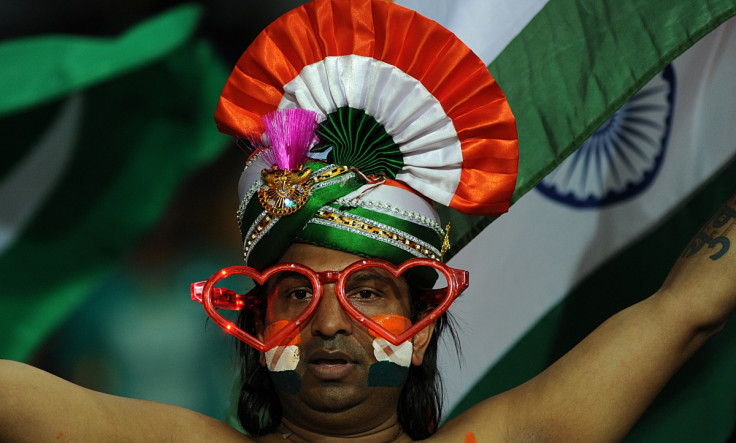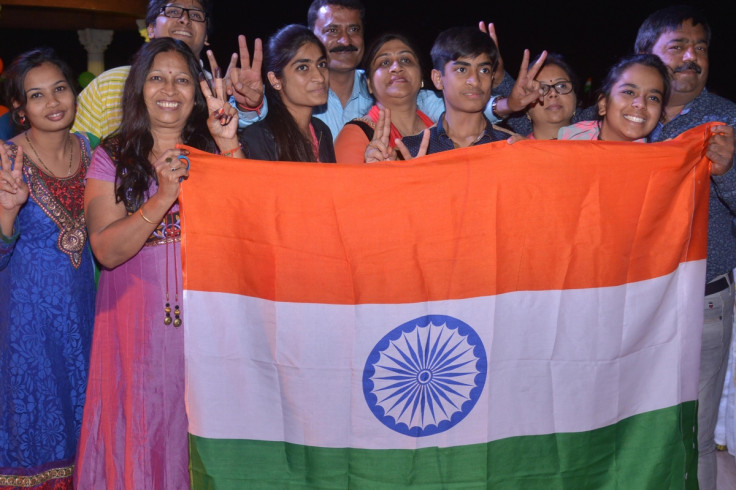India's flashy T20 World Cup reflects nation's move towards superficiality over tradition

Huge, loud, passionate crowds. Billions of rupees spent on adverts, endorsements and TV rights. Bollywood's most venerable star singing the national anthem before a match against the nation's fierce local rivals.
If it looks like India is taking the T20 Cricket World Cup very seriously, that's because it is. Far too seriously, in fact, given that T20 is a severely abbreviated and - many would say - coarsened form of a complex and noble sport.
India's devotion to what should be seen as no more than an entertaining diversion could be dismissed as a harmless quirk if it did not suggest something a little troubling about the very nature of the country itself - or at least the sort of country it is rapidly becoming. A country where, under the lure of wealth, the superficial and instant is beginning to hold sway over traditional, time-honoured virtues and values.
India, ironically, was the last of the major cricketing nations to embrace and turn to Twenty20, but has since flown its flag with the zeal of a true convert. Invented in England as a means to inject fresh life into what was feared to be an increasingly moribund sport, T20 is still understood in the land of its birth for what it is.
It attracts young fans to cricket and raises much-needed cash for the county game via a fast-paced - though short-lived - spectacle that can be enjoyed with a few beers after work. It is ephemeral entertainment for our hectic modern lives - no more than that.
But in India it has been hoisted to another level altogether. The Indian Premier League (IPL) - with its vast reserves of money and outrageously hyperbolic presentation - could not happen on such a scale in any other country. It entices overseas stars with the promise of a quick pay-day and makes instant celebrities and millionaires of Indian players before they have even played a single Test match.
Yet beneath the glitz and glam remains the same wham-bam spectacle.
Older generations lament the erosion of traditional virtues of modesty and restraint in the face of rampant consumerism and materialism
It is the infinite complexities and myriad possibilities of cricket reduced to little more than one play - a bowler pitching it up and a batsman taking one step forward before attempting a swipe down the ground. The 'ball' in cricket has been reduced to a baseball 'pitch'. Which is no disrespect to the American sport, as they are fundamentally different games. When cricket is played this way it makes mediocre batsmen and bowlers appear as world-beaters. Stick these same players in a Test match and their limited techniques will be found severely wanting.

Giving T20 primacy over Test cricket is the sign of a culture losing sight of where to find true meaning, quality and authenticity in human experience. Any visitor to India will see this - not just in a cricket stadium but in all spheres of life.
It is a process that has accelerated in recent years. Real estate values, designer labels and the price of the new Mercedes model are what dominate the conversations of India's burgeoning middle classes - along with the latest T20 or ODI score.
Meanwhile the older generations lament the erosion of traditional virtues of modesty and restraint in the face of rampant consumerism and materialism. As another ancient monument is bulldozed to make way for a gleaming shopping mall or exclusive residential tower, they question whether India's timeless values will survive when placed alongside the promise of instant gratification.
Of course, much of this is understandable and entirely excusable. India may have thrown off the shackles of colonial rule in 1947, but the economy remained hindered by socialist controls and protectionism for, at least, a further four decades. Once the so-called 'Hindu rate of growth' was consigned to history from the 1990s onwards and India began to take more of its rightful share of global wealth, it was inevitable many citizens would become single-minded in the pursuit of affluence.
India's economy and culture - of which cricket is a prime expression - is still finding its way in the modern world
And it may just turn out to be a passing phase, or more specifically, part of a nation in transition. India's economy and culture - of which cricket is a prime expression - is still finding its way in the modern world. It is yet to settle in a place of equilibrium.
But while the Indian state may be a modern creation, the nation's civilisation is ancient. And it is here that there lies great cause for hope. It was always thought that India's deep love for the British import known as cricket - in its original, longer form - was rooted in the nation's own Hindu history. This is a religious and cultural tradition that emphasises the unfathomable complexity of life and upholds the qualities of patience and forbearance.
Such an outlook obviously finds a natural home in Test cricket. And it still beats strongly amidst the waves of money washing over the country. In the coming years the nation's collective soul will have to make profound decisions about what sort of place India is, as it adjusts to new-found wealth, power and influence. And seeing how its people choose to watch cricket may just give us an indication as to which path the world's second most populous nation will take.
Harcharan Chandhoke was born in Derby to Indian parents. He writes on issues affecting the Indian diaspora across sport, culture and current affairs.
© Copyright IBTimes 2024. All rights reserved.






